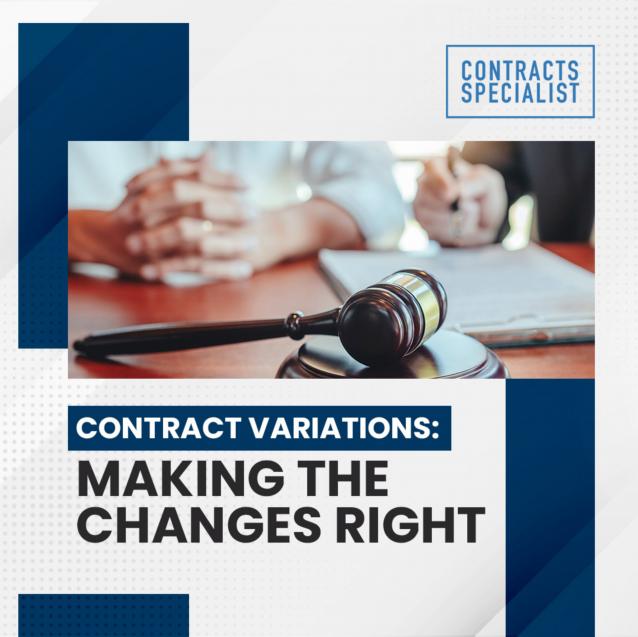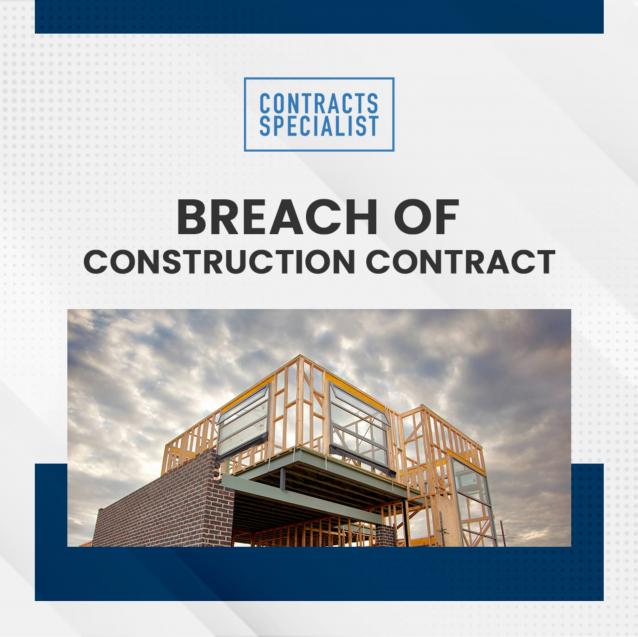
HIA VARIATIONS: A Homeowner’s Guide
By Contracts Specialist|November 16, 2022
Variations in home building projects are a major source of building disputes in NSW. This article explains how variations are properly made under the 2021 HIA NSW Residential Building Contract for New Dwellings, and what to do if variations lead to dispute.
What are variations?
Variations are changes or alterations made to the works, which are outside of, or contrary to, those specified in the scope of works.
These include changes to:
Who may ask for variations?
Both the owner and the builder may ask for variations.
Variations by the builder
These are variations asked for by the builder, as for example, changing the flooring from one material to another, because of the unavailability of supply of materials as originally laid out in the plans and specifications.
This may lead to an increase or decrease in the contract price, although it’s usually the former.
Variations by the owner
The owner is the person contracting the builder to commence building works – in this case – you.
You may request the builder to deviate from the plans, subject to the builder’s agreement or refusal. There is a process you need to follow if you want to request for variations, which can be found in a Clause in your contract.
Variations clause
The Variations clause, which your contract should have, details how variations may be properly made, and also gives the limitations and obligations imposed on the parties.
Typically, the Variations clause’s main points state that:
1. It is an agreement, therefore, it must be:
2. If the owner asks for a variation, the builder should reply as soon as is reasonable.
3. The builder’s reply could be either an offer to carry out the variation, or a refusal.
a) If the builder offers to carry out the variation, he should state in his reply:
b) If the builder refuses to carry out the variation – he does not have to give out reasons.
4. The builder’s offer is deemed withdrawn, that is, the variations asked for by the owner will not be made if:
5. Valuation of variations
> If the price is not agreed upon prior to the variations being carried out, the price would include:
6. Price of variation is due and payable at the next progress payment after it is carried out (unless a different time is agreed).
7. If a variation is required for the building works to comply with the law or a requirement of any statutory or other authority, the owner must not unreasonably withhold consent.
8. Owner acknowledges that the color of grain, timber, granite, other natural materials – may vary.
Why are variations a common source of dispute?
Among other things:
Variations dispute
1. If a dispute arises, a party must give written notice to the other party setting out the matter in dispute.
2. Builder and owner must meet within 10 working days of the giving of the notice to attempt to resolve the dispute or to agree on methods of doing so.
3. If the dispute is resolved, the parties must write down the resolution and sign it.
4. The parties agree that anything done or said in the negotiation cannot be revealed in any other proceeding.
If the dispute remains unresolved
How we can help
The HIA building contract is generally written to favor builders. Hence, it may be a good idea to engage a specialist construction lawyer for Contract Review and Advice, so that you may be apprised of what you need to negotiate with your builder. Contracts Specialist has expert building and construction lawyers who can do just that. And if you are currently in dispute with your builder about contract variations you did not agree to, we can help you with that, as well.
What are variations?
Variations are changes or alterations made to the works, which are outside of, or contrary to, those specified in the scope of works.
These include changes to:
- design
- materials
- quantities
- quality
- work sequence
Who may ask for variations?
Both the owner and the builder may ask for variations.
Variations by the builder
These are variations asked for by the builder, as for example, changing the flooring from one material to another, because of the unavailability of supply of materials as originally laid out in the plans and specifications.
This may lead to an increase or decrease in the contract price, although it’s usually the former.
Variations by the owner
The owner is the person contracting the builder to commence building works – in this case – you.
You may request the builder to deviate from the plans, subject to the builder’s agreement or refusal. There is a process you need to follow if you want to request for variations, which can be found in a Clause in your contract.
Variations clause
The Variations clause, which your contract should have, details how variations may be properly made, and also gives the limitations and obligations imposed on the parties.
Typically, the Variations clause’s main points state that:
1. It is an agreement, therefore, it must be:
- in writing
- signed by the builder and owner
2. If the owner asks for a variation, the builder should reply as soon as is reasonable.
3. The builder’s reply could be either an offer to carry out the variation, or a refusal.
a) If the builder offers to carry out the variation, he should state in his reply:
- the work required to carry out the variation
- the price of the variation
- any extension of time to the building period as a result of carrying out the variation
b) If the builder refuses to carry out the variation – he does not have to give out reasons.
4. The builder’s offer is deemed withdrawn, that is, the variations asked for by the owner will not be made if:
- the owner does not give the builder the signed written acceptance of the builder’s offer,
- within 5 working days of the builder giving his reply
5. Valuation of variations
> If the price is not agreed upon prior to the variations being carried out, the price would include:
- deductions of reasonable cost of all deletions from the building works
- addition of the total cost of all extra work plus the builder’s margin
6. Price of variation is due and payable at the next progress payment after it is carried out (unless a different time is agreed).
7. If a variation is required for the building works to comply with the law or a requirement of any statutory or other authority, the owner must not unreasonably withhold consent.
8. Owner acknowledges that the color of grain, timber, granite, other natural materials – may vary.
Why are variations a common source of dispute?
Among other things:
- Variations always affect the contract price (valuing the variation)
- Sometimes, questions arise if whether the change is a variation, or if it is inherently, impliedly, or necessarily included in the works (agreeing whether the works constitute a variation at all)
- There is sometimes an issue on variations made by the builder, that the owner did not agree to, or that the owner could not afford
- What to do when there is dispute related to variations
Variations dispute
1. If a dispute arises, a party must give written notice to the other party setting out the matter in dispute.
2. Builder and owner must meet within 10 working days of the giving of the notice to attempt to resolve the dispute or to agree on methods of doing so.
3. If the dispute is resolved, the parties must write down the resolution and sign it.
4. The parties agree that anything done or said in the negotiation cannot be revealed in any other proceeding.
If the dispute remains unresolved
- If, following the above, the dispute remains unresolved, recourse may be had with the Office of Fair Trading, where the parties may be instructed to undergo ADR (Alternative Dispute Resolution).
- If the issue still remains unresolved at the Fair Trading level, the aggrieved party may lodge a complaint with the NSW Civil and Administrative Tribunal (NCAT) where the matter will undergo directions hearings.
- Finally, if the dispute still remains unresolved, or if you’re not satisfied with the tribunal’s decision, you can lodge a complaint in court.
How we can help
The HIA building contract is generally written to favor builders. Hence, it may be a good idea to engage a specialist construction lawyer for Contract Review and Advice, so that you may be apprised of what you need to negotiate with your builder. Contracts Specialist has expert building and construction lawyers who can do just that. And if you are currently in dispute with your builder about contract variations you did not agree to, we can help you with that, as well.



